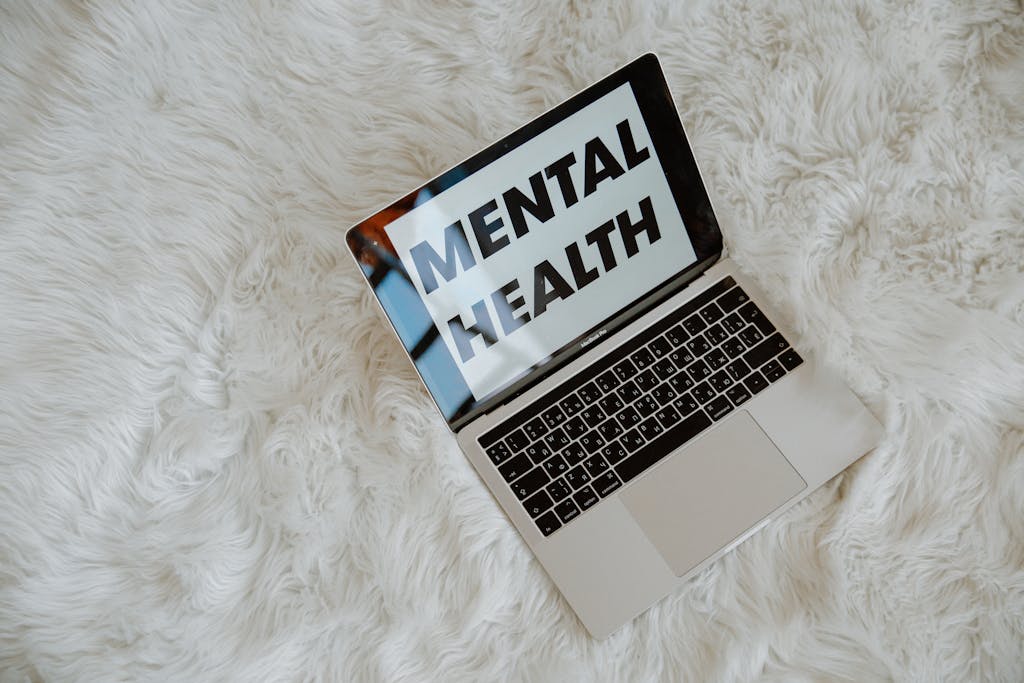Mental Health Services for Online Learners

Disclaimer: The post on Mental Health Services for Online Learners is developed in partnership with BetterHelp.
As a society, we’ve encountered many new and challenging obstacles over the past few years. The COVID-19 pandemic dramatically changed the way we live, work, and learn. While online learning was already a growing trend, many students and professionals were thrust into this mode of education without much preparation or support.
Online learning offers incredible flexibility and opportunities, but it comes with unique challenges — including those related to mental health. The potential for isolation, increased stress, and a lack of traditional support systems can take a toll. For some, the online learning environment can exacerbate existing mental health conditions, while others may experience new struggles as they navigate this uncharted territory.
That’s why it’s essential to prioritize mental health services for online learners. Just as we invest in technology and resources to ensure a smooth virtual learning experience, we must also invest in support systems that address the mental well-being of students and professionals. This article will discuss the importance of mental health services for online learners and offer tips for accessing support.
Understanding the Impact of Online Learning on Mental Health
Online learning can help individuals gain new skills and knowledge, but it can also bring about feelings of loneliness, anxiety, and stress. Unlike traditional classrooms, online learners may not have the same opportunities for social interaction or in-person support from teachers and peers.
Without proper access to mental health services, these feelings and concerns can intensify and lead to more severe challenges. Burnout, depression, and anxiety are all potential consequences of neglecting one’s mental well-being while completing online courses or working remotely.
The virtual environment of online learning can also subtly amplify mental health difficulties.
Here’s how:
- Isolation and loneliness: The absence of in-person social interaction with classmates and instructors can contribute to feelings of disconnection and loneliness.
- Technological pressures: Technical difficulties, the constant lure of distractions, or the need to be self-directed with assignments can lead to heightened anxiety or frustration.
- Blurred boundaries: When your living space also becomes your classroom, the lines between study time and personal time can blur, making it hard to relax and recharge fully.
- Difficulty recognizing when help is needed: Without the daily structure of a traditional school, it can be harder to recognize when those off-days are actually becoming a pattern indicative of a larger struggle.
Even the most self-motivated and dedicated students may find themselves facing these challenges. That’s why it’s crucial to prioritize mental health services for online learners.
Mental Health Isn’t a Weakness
Our mental well-being encompasses how we think, feel, and manage life’s ups and downs. Just like physical health, mental health can fluctuate, and sometimes we need extra support. Seeking help isn’t a sign of failure; it’s showing strength and a commitment to your overall well-being.
Signs It’s Time to Seek Support
Sometimes, we may experience mental health challenges without even realizing it. If you’re experiencing the following, it might be time to reach out for help:
- Persistent stress or anxiety: Feeling overwhelmed, on edge, irritable, or having trouble sleeping due to racing thoughts.
- Changes in mood: Feeling consistently down, hopeless, unmotivated, or experiencing unexplained mood swings.
- Difficulty concentrating: Finding it harder than usual to focus on schoolwork or engage with things you normally enjoy.
- Changes in behavior: Significant shifts in appetite, sleep patterns, energy levels, or social withdrawal.
- Inability to cope with daily tasks and responsibilities: Feeling overwhelmed by daily tasks, experiencing a lack of motivation, or falling behind in schoolwork or work assignments.
If any of these experiences resonate with you, it’s essential to prioritize your mental health and seek support. Remember that reaching out for help is not a sign of weakness but rather an act of self-care.
Finding the Support You Need
Free counseling may be available through your school or workplace, and many organizations offer affordable online therapy services. https://www.betterhelp.com/advice/counseling/is-free-counseling-right-for-you-where-to-get-therapy-online/
Here are some places you can turn to for mental health support:
- Your school’s resources: Even online institutions often have counseling services or student support networks. They may be accessible virtually.
- Teletherapy: Therapists specializing in online counseling offer a convenient, private way to get professional guidance from the comfort of your own space.
- Online support groups and communities: Peer-led forums and communities designed for mental health support can provide a safe space for sharing experiences and finding understanding.
- Crisis resources: If you’re in immediate crisis, don’t hesitate to access resources like 988 (or the Crisis Text Line by texting HOME to 741741).
Remember: you are not alone, and there is no shame in seeking help for your mental health. Resources are available to help you thrive as an online learner, both academically and personally. Prioritizing your mental well-being is essential for success in all aspects of life, and we encourage you to take advantage of the support services available to you.
Self-Care Strategies for Online Learners
Self-care is often a vital aspect of maintaining good mental health. When we neglect self-care, it can lead to increased stress and mental distress. Additionally, practicing self-care can help us cope with the challenges of online learning and maintain a healthy work-life balance.
Here are some simple self-care strategies that can help you maintain a healthy mind while studying or working online:
- Prioritizing healthy habits: Nutritious food, regular sleep, and some form of exercise can all bolster your mental resilience.
- Digital detox: Take screen breaks and engage in activities completely unconnected to technology.
- Connecting with People: Reach out to trusted friends or family, whether in person or online.
- Practicing relaxation techniques: Mindfulness exercises, deep breathing, or spending time in nature can help manage stress and anxiety.
No matter which strategies work best for you, make sure to incorporate some form of self-care into your routine. While individual experiences may vary, prioritizing mental health can help make online learning a more positive and fulfilling experience.
The unique challenges of online learning can help us learn to adapt, grow, and thrive both academically and personally. By taking care of our mental well-being, we can set ourselves up for success now and in the future.







